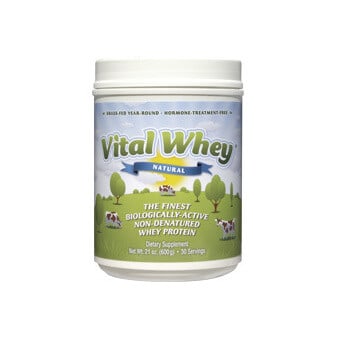 If you’re like a lot of people out there, you might be looking to drop a few pounds and tone up those muscles you’re not even sure you have anymore. People attempt all kinds of crazy diets to achieve that weight loss goal, but in the end give up more frustrated than ever! Let’s face it, fad diets don’t work. The only way to lasting change lies in a healthy diet and physical activity. However, research shows us that the key to looking AND feeling great is about 70 percent diet and 30 percent exercise.
If you’re like a lot of people out there, you might be looking to drop a few pounds and tone up those muscles you’re not even sure you have anymore. People attempt all kinds of crazy diets to achieve that weight loss goal, but in the end give up more frustrated than ever! Let’s face it, fad diets don’t work. The only way to lasting change lies in a healthy diet and physical activity. However, research shows us that the key to looking AND feeling great is about 70 percent diet and 30 percent exercise.
So if our diet is the major contributor to our health, what should we be eating?
Protein Is Key
Across the board weight loss plans that encourage a diet high in protein and low in carbohydrates appear to enhance weight loss. Protein promotes higher rates of fat burning while maintaining lean muscle mass – which we know is imperative to ramping up our metabolism.
Short term studies are showing us that high protein diets increase satiety, thermogenesis, sparing of muscle protein loss, and enhanced glycemic control.
The last one mentioned, glycemic control, is a BIG one. When we talk about glycemic control we’re basically talking about blood sugar, and we know that controlling our blood sugar can help us fight off cravings as well as protect our body from a number of diseases and problems.
Whey Protein and Exercise Are Good for Weight Loss
Studies have shown that the most satiating nutrient you can consume is protein. A study in the American Journal of Clinical Nutrition looked at the effects of a high protein (HP) breakfast versus a high carbohydrate (HC) breakfast, and measured the amount of Ghrelin (hormone produced by cells in the stomach lining that signal either hunger or satiation), secreted post meal. Their results showed that the HP meal decreased Ghrelin concentrations more than the HC meal did, and it also slowed gastric emptying. What this means is that eating a high protein breakfast, like a whey protein shake, will help you feel more satisfied over the course of the morning and even throughout the day.
The study also concluded that a key element in a HP diet appears to be the higher intake of the BCAA, Leucine. Leucine helps secrete insulin from your pancreas, lower blood sugar levels, and it works with the other two BCAAs, Isoleucine and Valine, to spare your muscles from being used as fuel for energy.
We’ll talk more about Leucine later.
Whey Protein and Weight Loss
 Over the years whey has been well researched and documented for its ability to increase Glutathione levels, boost immune system function and build muscle – but we are now finding that whey protein may also be benefitial in weight loss as well.
Over the years whey has been well researched and documented for its ability to increase Glutathione levels, boost immune system function and build muscle – but we are now finding that whey protein may also be benefitial in weight loss as well.
Whey’s ability to help you lose weight is now being researched intensively. By helping stimulate the release of appetite suppressing hormones cholecystokinin and glucagon-like peptide-1, whey protein may be able to help you lose weight.
Are all sources of protein able to do this?
The short answer is no. It seems as though not all proteins are able to suppress appetite as well as whey protein. Even though more studies are needed on humans, one done on Wistar rats concluded that a high-protein diet reduced caloric intake and adiposity, and that whey protein is more effective than red meat in reducing body weight gain and increasing insulin sensitivity.
Whey protein also contains high amounts of Leucine which we talked about earlier. Leucine is an amino acid that can help you build muscle and burn body fat, however it is an essential amino acid which means it must be consumed. High-protein foods such as beef, chicken, fish, eggs and dairy are all great sources of Leucine, but whey protein tops the list for Leucine rich foods!
Incorporating Whey into Your Weight Loss Plan
The first step would be to find a high quality bioactive whey protein concentrate, like our Vital Whey. You want to make sure that the whey is from grass-fed cows that are disease-free, pesticide-free, chemical-free, hormone treatment-free and GMO-free. Not all protein powders are created equal, and you will get what you pay for.
You can mix our Vital Whey or ImmunoPro into the beverage of your choice – some favorites include milk, water, almond, rice or coconut milk. Whey protein can be consumed any time during the day but many prefer to have it first thing in the morning to help jump start their metabolism. Remember, you should eat breakfast within 30 minutes of waking. Others prefer to time their protein shakes before or after exercise (usually 30 minutes before or after) to fuel up and repair after a workout.
Bottom line is that research is showing that individuals who add a high quality whey protein supplement into their diet (especially when trying to shed pounds) are successfully losing weight and gaining health. Instead of popping diet pills, or starving yourself on the latest diet craze… spend your money on an all-natural, whole food that has been proven to work. Combine whey protein and exercise to maximize your effort.
To read more about Whey Protein and Fitness, click on the links below…
To view Whey Protein and Fitness Part 1 click here
To view Whey Protein and Fitness Part 2 click here
Resources
Annual Reviews: Dietary Protein, Weight Loss, and Weight Maintenance
The Journal of Nutrition: Dietary Protein Impact on Glycemic Conrol During Weight Loss
- Best Fitness Supplements: Glutamine and Colostrum Uses and Benefits - December 19, 2019
- Cooking with Protein Powder - November 22, 2019
- Is There A Point To Taking Whey Protein After Cardio? - September 16, 2019





